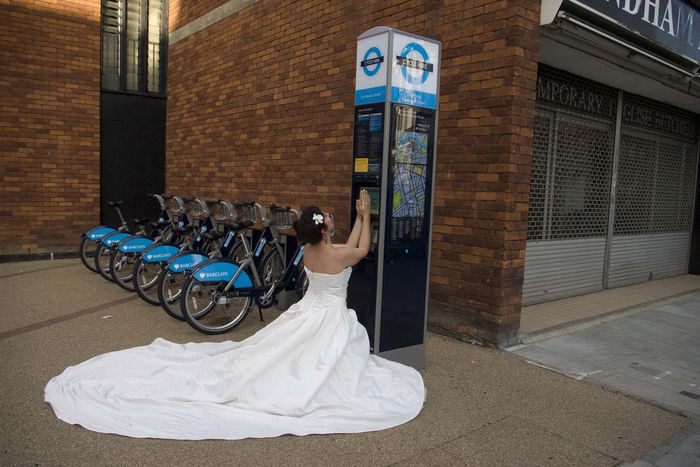
Migration and women exhibition: London's 'Wedding Bellas'
Published on
This photographic project shows the stories of twelve women, disturbing the perception of migrants and refugees in the UK today. London-based Serbian photographer Nela Milic’s two-year mission is funded by the European cultural foundation and features women from the migrants resource centre and other females who wanted to join them. The exhibition runs from 27 May until 15 June
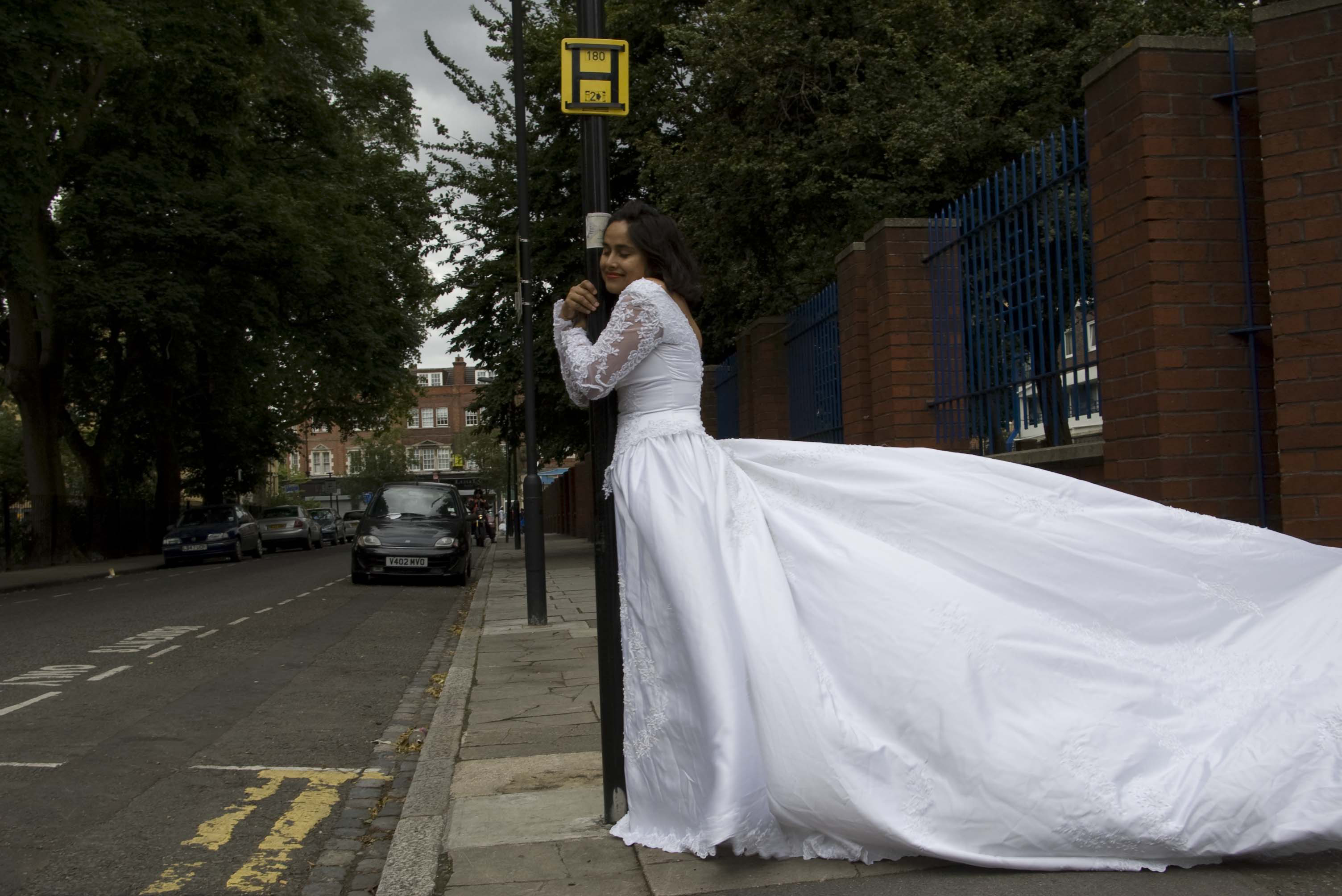
Serbian photographer Nela Milic’s project is about the female desire for roots and stability. It acts as a comment on ageing, migration and marriage, but can be a record of an individual’s urge to hide personal problems, as a human need for dressing up. Pictured, Jobeda (Image: © Nela Milic)
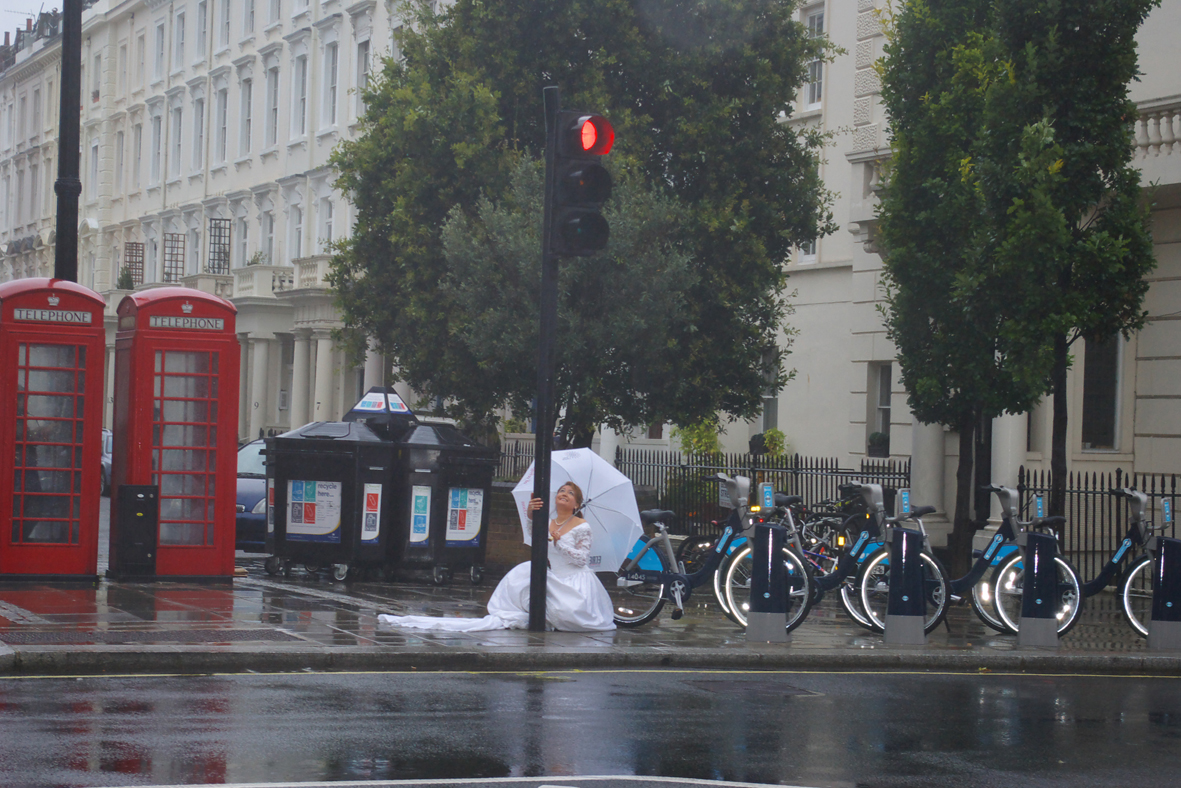
Our brides’ illusory wedding is the consequence of the loss of reality due to pressure of their life circumstances. The images question if the situation the women are in is real or it is imaginary. Many have been rejected by their partners, landlords and employers, but the majority were refused to stay in the country by the state. Pictured, Olga (Image: © Nela Milic)
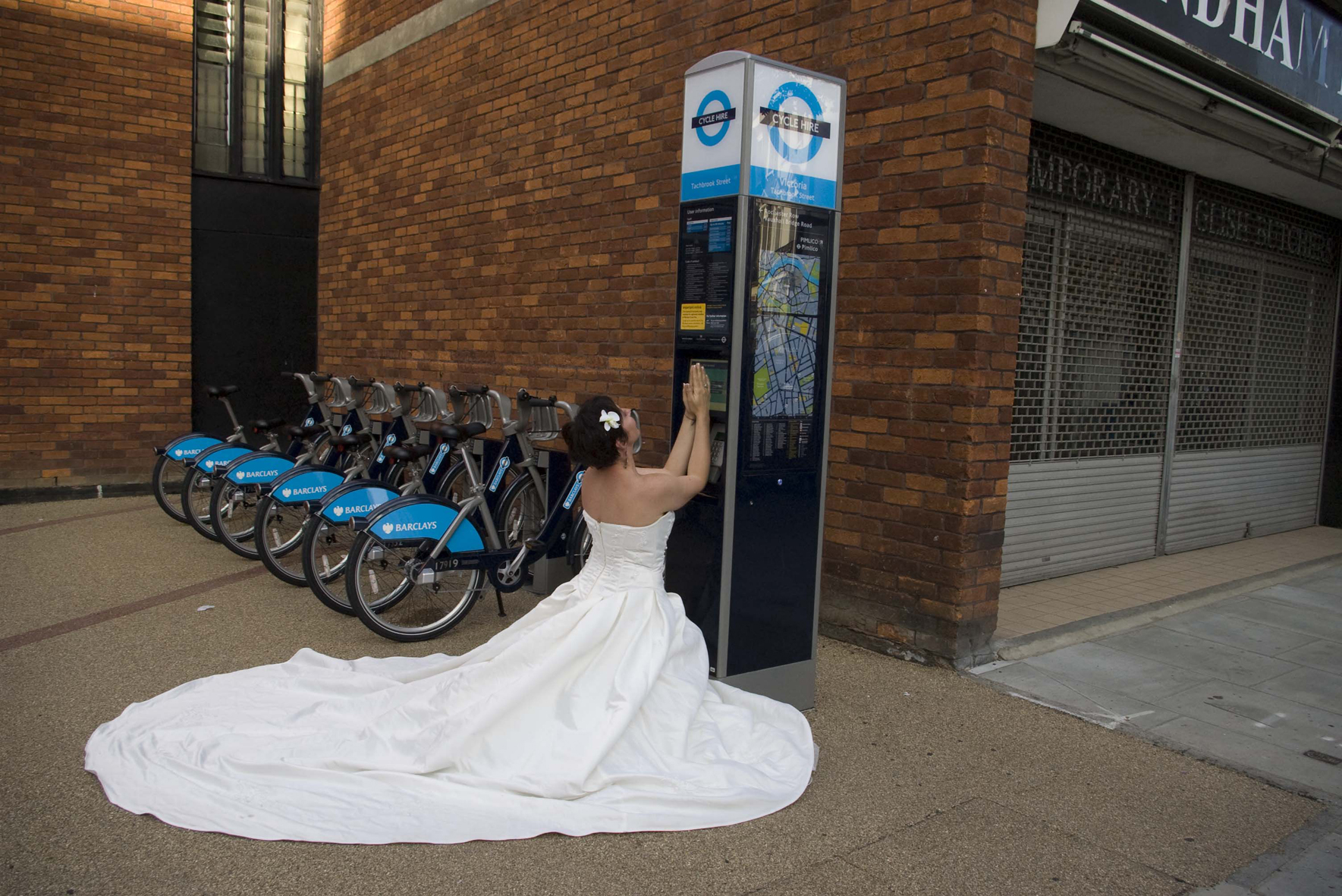
The project presents brides passionately attached to the objects of their marriage. Wedding dresses are surrounded by other wedding iconography, but the image is a serious matter – it is an event of desperation and illusion shot as if it were at a true wedding ceremony. Firstly observed by the public on the street during the shooting are again looked at in the gallery or at publication, giving the opportunity to the viewer to participate in the shooting process by identifying with the public on the set. Women’s dresses are a mark of history situated in the midst of the metropolitan city, interrogating the old constructs of national boundaries, civic laws and social codes. Pictured, Dita (Image: © Nela Milic)
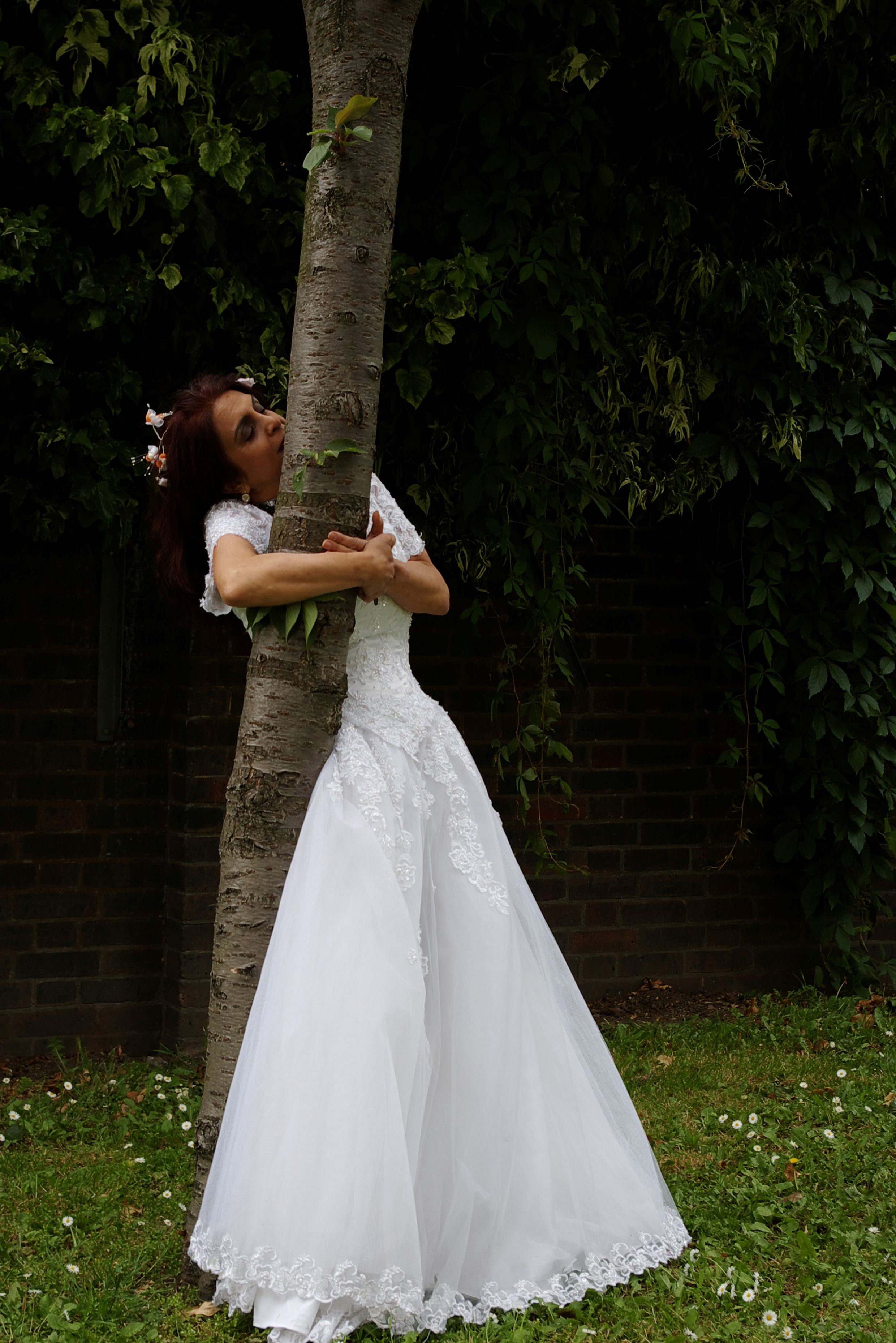
The white dress represents innocence. In the eyes of the state these ladies might be guilty for ‘paper marriage’ (for marrying British subjects). Yet they are innocent at the court of human rights and in their own eyes. The evidence of their powerlessness to have choices in life as free human beings is reflected in their lonely wedding photos. They show an extraordinary resilience and resourcefulness in the face of sometimes all of these rejections happening at once and the burden of so many problems caused them to escape into fantasy. They opt for equally stable, rooted and good looking ‘Queen’s subjects’ – a lamppost, a tree, a traffic sign amidst London’s landmarks. Pictured, Soheila (Image: © Nela Milic)
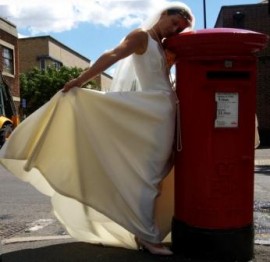
A bunch of brides hugging street objects is not a wedding anyone thinks of as for real. It provides a neighbourhood spectacle. It encourages a local debate about the impacts of borders on human relationships and social changes of the areas we live in. Pictured, Nela (Image: © Nela Milic)



